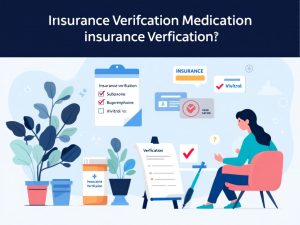Understanding non punitive outpatient care
When you or a loved one are seeking help for behavioral health, psychiatric, or substance use challenges, you may feel anxious about the level of judgment you might face. Non punitive outpatient care shifts the focus away from blame, instead emphasizing trust, compassion, and shared responsibility. At its core, a non punitive approach to outpatient treatment recognizes that stumbles and setbacks are part of the recovery process, not grounds for punishment or shame.
Several studies underscore how crucial a supportive, blame-free setting can be for achieving sustainable change. In fact, research published by HealthLeaders Media emphasizes that punitive systems often undermine patient progress by breeding fear and discouraging open communication. By contrast, a supportive environment encourages honest reporting of challenges like relapse, mental health fluctuations, or difficulty in adhering to treatment goals. This creates a platform from which you can collaborate with your care team, refine your coping strategies, and continue moving forward.
Emphasizing trust and compassion
A primary reason many people delay seeking outpatient services is the fear of being judged or penalized if they do not make perfect progress. This fear can be especially strong if you have already tried to quit a substance or manage a mental health condition independently and encountered difficulties. Non punitive outpatient care acknowledges that recovery is a journey. Instead of punishing setbacks, it frames them as signals that a new or adjusted approach might be needed.
- You are given the dignity to share your challenges without fear of blame.
- Your care team actively listens, seeking to understand the root causes behind each setback.
- Together, you and your providers adjust the plan and incorporate fresh strategies that better fit your life circumstances.
By embracing an environment of trust, you can more confidently contribute your perspective, empowering yourself and your healthcare team to make collaborative, well-informed decisions. This shared decision-making process is an integral part of non punitive care. It also supports a sense of autonomy, which often boosts confidence and motivation in treatment.
Why choose Epic Health Partners
Epic Health Partners is committed to providing outpatient behavioral health, psychiatric, and substance use treatment rooted in empathy and evidence-based practices. Adopting a non punitive approach at every stage of care means you can expect:
- An empathetic welcome: Our team acknowledges the courage it takes to seek professional help. We prioritize listening to your story without judgment.
- Individualized planning: We recognize that each person’s background, mental health needs, and personal goals are unique. We use these insights to shape a treatment plan that best supports you.
- Encouragement of dialogue: Rather than mandating rigid rules, we encourage transparent conversations. If you stumble during treatment, our goal is to learn from it so we can refine your strategies.
- Long-term support: Approaches to addiction, mental health, and behavioral challenges are ongoing. We provide continuous guidance, specialized therapies, and updates to your treatment plan to sustain your well-being for the long haul.
At Epic Health Partners, you will experience how non punitive outpatient care can strengthen your determination to overcome obstacles—no matter how long or complex your journey might be.
Linking research to better outcomes
Many healthcare initiatives now highlight the importance of establishing non punitive environments. According to a study in the NCBI Bookshelf, healthcare settings adopting this philosophy consistently observe increased patient participation, better adherence to treatment protocols, and a noticeable decrease in adverse events. When you are not afraid of judgment, you’re more likely to be transparent about issues such as side effects, emotional crises, or negative habits. This transparency allows your care team to intervene proactively.
According to additional findings from PubMed, a non punitive, collaborative structure can reduce avoidable complications or relapses, significantly lower overall healthcare costs, and increase reported satisfaction among both patients and staff. The same principles apply to outpatient behavioral health and substance use treatment. Embracing a non punitive framework fosters trust, encourages dialogue, and reduces the stigma often tied to seeking help.
Key features of a non punitive approach
To better appreciate how non punitive outpatient care transforms lives, it helps to understand specific elements that shape this approach. These core features help you and your treatment team collaborate on goals and strategies, leading to more reliable, positive outcomes.
1. Shared decision-making
When treatment planning feels dictated to you, it can be disempowering. In non punitive care, you are included in every decision that influences your mental health or addiction treatment journey. By exploring your preferences, comfort level, and lifestyle, your providers can more accurately craft an approach that resonates. This cooperative process fosters a sense of ownership in recovery.
2. Blame-free communication
In most punitive systems, setbacks are labeled as failures, which can discourage continued attempts at improvement. Non punitive outpatient care turns mistakes and relapses into learning opportunities. By openly discussing these events, you can discover triggers and handle future challenges more effectively, rather than feeling ashamed for not meeting unrealistic expectations.
3. Individualized treatment
No two individuals—nor their life stories—are identical. Men, women, and youth all have unique stressors, societal influences, and triggers. In non punitive care, practitioners take the time to understand these distinct factors. Whether you need heroin addiction treatment, family therapy addiction, or ptsd addiction treatment, your plan is shaped around your own experiences and motivations, rather than simply following generic guidelines.
4. Continuous feedback loops
Non punitive approaches value consistent feedback and regular check-ins. For instance, if your chosen therapy methods, like trauma informed addiction therapy or dbt for addiction, are no longer advancing your progress, you can share your experiences honestly. This feedback can then shape a refined therapeutic direction that is more likely to work for you. Such dynamic adaptability keeps your treatment fresh and relevant.
How Epic Health Partners implements non punitive principles
At Epic Health Partners, we strongly believe that successful outpatient behavioral health and substance use care is best nurtured through compassion and encouragement. Here is what you can expect when you choose our non punitive approach:
Collaborative clinical intake: From the moment you engage with us, you are actively involved in building your comprehensive treatment plan. Our clinical intake assessment process is thorough, yet welcoming—designed to highlight your personal needs, goals, and day-to-day challenges.
Holistic program options: We offer a wide range of services, from opioid addiction treatment to marijuana use disorder treatment. We also address mental health aspects through interventions such as family therapy addiction, mindfulness therapy addiction, and more. Each option is selected based on your unique situation.
Structured yet flexible recovery: Our structured recovery program provides a strong foundation of evidence-based therapies, like cbt for addiction. However, we remain open to tailoring or replacing any therapy that no longer serves your needs. This flexible mindset underscores our determination to adapt to your evolving journey.
Inclusive support system: We extend care to various populations and personal circumstances, including veteran addiction support, lgbtq addiction support, and youth mental health program. In line with a non punitive model, we believe that each group deserves an environment where they can recover without fear of reproach or marginalization.
Insurance-friendly approach: Financial worries should never prevent you from pursuing mental health or substance use care. We accept multiple insurance options to maximize access, including public coverage programs such as medicaid mental health provider or medicare mental health provider. By easing these burdens, we strive to make effective, empathetic assistance available to as many people as possible.
Advantages of non punitive outpatient care over traditional models
Empowerment in your journey
Traditional outpatient care can feel prescriptive, potentially costing you the sense of control and confidence that is vital for sustained progress. In non punitive outpatient care, your voice matters at all times. By engaging in open dialogues and feedback processes, you remain an active, informed participant in your own transformation. This sense of autonomy often drives motivation, helps you recognize accomplishments, and creates a more lasting impact.
Reduced stigma
Studies show that the stigma surrounding mental health and addiction amplifies feelings of isolation. In a blame-free environment, this stigma loses its power. As you handle challenges like substance cravings or emotional triggers, you do so with the support of a team that genuinely understands. You are not branded as a failure if you relapse or find a particular therapeutic approach ineffective.
Encouragement of open discussion
Without the threat of punishment or labeling, you are free to express concerns, criticisms, and uncertainties. This open forum often results in deeper, more meaningful conversations about your goals and obstacles. Whether you struggle with fentanyl addiction treatment or need guidance through life skills training addiction, feeling safe enough to voice your needs and setbacks can significantly enhance the therapeutic relationship.
Higher retention and consistency
Refusing to penalize missteps fosters a sense of safety and mutual trust, which in turn can increase your willingness to stay in treatment. Consistent attendance, engagement, and follow-up visits—which are critical to making meaningful progress—tend to be stronger in programs that do not tolerate shame-based methods. Instead of worrying about being scolded or judged, you can explore solutions alongside your providers.
Integrating cultural humility and personalized care
Cultural and personal values directly influence how you perceive treatment strategies, medications, or interventions. According to NCBI, health providers who focus on “cultural humility” are better equipped to earn the trust of diverse populations. This approach involves:
- Acknowledging that each person’s experiences are uniquely shaped by cultural, social, and familial factors.
- Actively listening to these perspectives to prevent presuppositions from overshadowing your needs.
- Continually learning from and about the communities served, to remain sensitive to their traditions, customs, and concerns.
When integrated with non punitive outpatient care, cultural humility ensures you receive support that respects and honors your background. Eliminating blame becomes doubly powerful when it is coupled with an appreciation for the cultural context behind your challenges, expectations, and motivations.
Evidence-based strategies for success
An important benefit of choosing Epic Health Partners is the variety of evidence-based strategies we incorporate into our programs. We believe that a blend of rigorous scientific validation and empathetic care sets you up for success. Here are just a few of our offerings:
Cognitive behavioral therapy
CBT for addiction centers on recognizing negative thoughts or behaviors, then systematically replacing them with healthier patterns. By using CBT within a non punitive structure, your therapist can help you avoid self-criticism while you learn valuable coping mechanisms.
Dialectical behavior therapy
DBT for addiction includes mindfulness techniques, emotional regulation strategies, and interpersonal tools that help you navigate stressful situations. A supportive, blame-free setting allows you to fully explore and practice these skills without fear of condemnation if you struggle at first.
Holistic recovery therapies
Whether it is holistic recovery therapy, equine therapy addiction, or nutrition support addiction, we draw on a broad range of holistic techniques. These options expand the possibilities for healing by addressing both the body and the mind. Coupled with non punitive feedback loops, these therapies encourage self-discovery without the weight of judgment.
Who benefits most from a non punitive approach
Non punitive outpatient care can be beneficial for a broad population, especially:
- Individuals with repeated relapses: If you have attempted recovery multiple times but found yourself feeling guilty or ashamed, a non punitive atmosphere might be the key to renewed hope.
- Those with co-occurring disorders: Managing mental health conditions alongside substance use disorders requires supportive frameworks. Fear of blame can make it difficult to share complicated symptoms or side effects.
- People discouraged by punitive experiences: If prior treatments left you feeling disrespected or patronized, switching to a blame-free model can reinvigorate your motivation.
- Culturally diverse or marginal populations: When cultural dimensions shape how you view treatment, non punitive care ensures that these perspectives are recognized and integrated.
At Epic Health Partners, we aim to meet all of these groups where they are, offering specialized programs like justice involved support programs or pregnant women addiction support. These services distinctly address your personal needs without imposing blame along the way.
Addressing relapse in a non punitive environment
Relapse is often misunderstood. Even with best intentions, you might experience urges to fall back into harmful behaviors. Rather than a sign of failure, relapse can be a signal that your treatment plan needs modifying. In a non punitive setting:
- Early detection: Because there is no risk of shame, you are more likely to share warning signs of relapse early on.
- Supportive intervention: Rather than penalizing the setback, your team sees it as a learning tool. Adjustments to medication, therapy, or coping strategies are made promptly.
- Renewed commitment: Encouragement from a non punitive program fosters resilience, helping you get back on track rather quickly once you have the revised plan in place.
Additional service enhancements at Epic Health Partners
Besides a core commitment to non punitive care, Epic Health Partners broadens your options with complementary services that strengthen your recovery and overall well-being:
- Recovery coaching: A personal coach can guide you through the intricacies of day-to-day decision-making and reinforce accountability in a positive manner.
- Telehealth addiction counseling and virtual therapy addiction: For those whose lifestyle or location makes in-person visits challenging, telehealth sessions offer flexible, real-time support.
- Court mandated dui classes: Required by the court system, these classes are provided without judgment, equipping you with the skills to make safer decisions on the road and in life.
- Wilderness therapy addiction or outpatient psychodrama therapy**: These experiential methods invite you to process emotions in novel, engaging ways, free from criticism or negativity.
Our aim is to give you the breadth of resources and treatments you deserve, ensuring each step forward is grounded in empathy and respect.
Overcoming barriers to care
Although evidence points overwhelmingly to the value of non punitive models, some people still hesitate to begin outpatient services. Common concerns include fear of stigma, worries about cost, and uncertainty about time commitments. By offering insurance accepted outpatient care, flexible scheduling, and a culture of acceptance, Epic Health Partners addresses these barriers directly.
In fact, if your life circumstances have historically impeded treatment, or if you have never found a provider who truly listened, a non punitive approach can change your perspective. It centers on you, your challenges, and your strengths, rather than focusing on blame.
Sustaining your progress
Recovery is not a one-time accomplishment. It requires maintenance, as well as continual personalized guidance. A hallmark of non punitive care is that it evolves with you:
- Regular check-ins: Routine sessions or calls allow you to discuss how your coping techniques and relapse-prevention strategies are working.
- Tiered care levels: Should your needs intensify over time, we can recommend a higher level of care without implying you have “failed.”
- Community integration: Many patients benefit from joining extended support groups or structured alumni programs. By sharing successes and challenges with peers who also understand a blame-free mindset, you can sustain motivation over the long term.
Frequently asked questions
Is non punitive outpatient care effective for severe addictions?
Yes. Even if you are coping with severe or long-standing substance use disorders—such as those requiring benzodiazepine addiction treatment or prescription opioid treatment—a non punitive approach encourages deep honesty and accountability. You will feel safe revealing difficulties as they arise, helping your care team rapidly modify strategies to fit your situation. Many individuals with severe addictions respond better to a supportive, empathetic environment than to a punitive one.
Will I need to stop using substances completely?
Every individual’s treatment plan is unique. Some may have total abstinence as a goal, while others adopt a reduced-use or harm-reduction strategy. According to studies shared by NCBI, many people find nonabstinence approaches effective in reducing harm and eventually achieving healthier lifestyles. We respect your personal preferences and readiness. Our main concern is providing a nurturing space for you to explore options that lead to safer outcomes.
Can I enroll in non punitive outpatient care if I have co-occurring disorders?
Absolutely. Co-occurring disorders—which might include anxiety, depression, or PTSD—often complicate the recovery process. By eliminating blame, a non punitive model invites full disclosure of mental health symptoms and substance use patterns. This clarity allows our care team to effectively coordinate interventions, such as group therapy addiction or trauma informed addiction therapy, for more robust, integrated support.
What if I relapse during outpatient care?
Relapse is a recognized part of many recovery journeys. In non punitive outpatient care, you will not be dismissed from the program or judged harshly if you relapse. Instead, we will work with you to pinpoint the contributors, reevaluate your therapy plan, and replace what is not working with new coping strategies or different treatment modalities. The objective is learning, adjusting, and progressing.
How do I get started with Epic Health Partners?
Taking the first step is as simple as reaching out to our team. We begin with a personalized clinical intake assessment that pinpoints your needs and objectives. From there, we collaborate with you to develop an individualized treatment plan, drawing from the wide range of programs offered at Epic Health Partners. Our staff will also assist with insurance inquiries and scheduling so that your transition into care is smooth from the start.
Take your next step with Epic Health Partners
Choosing non punitive outpatient care sets the stage for a more open, trusting, and effective approach to behavioral health or addiction treatment. By removing blame and centering on collaboration, you can fully engage in your recovery journey without fear of reprisal or stigma. At Epic Health Partners, we use this supportive mindset to help you or your loved one build resilience, confidence, and long-term stability.
Whether you are looking for methamphetamine addiction treatment, support for overcoming alcohol dependency, or solutions for co-occurring mental health conditions, our empathetic professionals stand ready to guide you each step of the way. We invite you to discover how non punitive care can transform your life and help you reclaim hope. We are here, ready to listen, and eager to provide the support you need.







